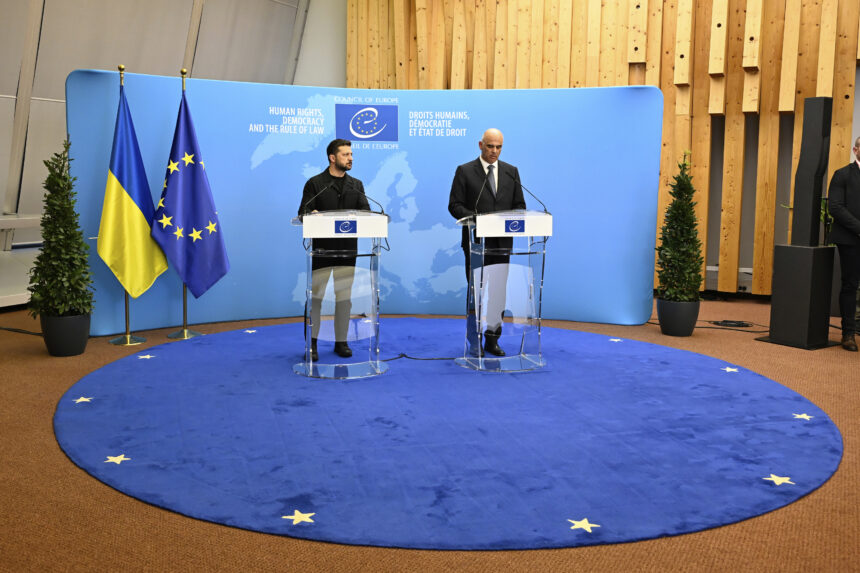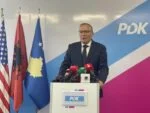For the third consecutive summit, the European Council was forced today to release a statement on Ukraine bearing the signatures of only 26 European Union leaders, as Hungary once again withheld its support.
The EU leaders, excluding Hungarian Prime Minister Viktor Orbán, reaffirmed their backing for a just peace in Ukraine, pledged continued military and financial assistance, and once again condemned Russia’s invasion. They also commended Ukraine for making “significant progress” in its EU accession process, according to Politico.
The statement calls on Russia to demonstrate genuine political will to end its aggressive war, agree to a ceasefire, and engage in meaningful negotiations. It also notes that the EU is prepared to adopt a new package of sanctions to, among other things, reduce Russian energy export revenues, but this is currently blocked by Hungary and Slovakia.
Ukrainian President Volodymyr Zelensky addressed EU leaders via video call, urging them to further lower the price cap on Russian oil. This measure is unlikely to be adopted, as it did not receive support at the G7 summit.
The statement further calls on EU members to continue accelerating the resolution of Ukraine’s urgent military needs, particularly the delivery of air defense and anti-drone systems. It emphasizes that Ukraine has met the conditions for opening the first cluster of accession talks, which relates to the rule of law, but again, Hungary’s support for this is currently lacking.
EU Divided on Trade Deal with US
In a separate development, the European Commission has received the U.S. response to the proposed trade agreement sent from Brussels to Washington. While the contents are not yet known, significant differences in opinion have emerged between Germany and France regarding how to respond to the U.S.
German Chancellor Friedrich Merz insists that the EU reach a quick trade agreement with the U.S. before July 9, which Donald Trump has set as the final deadline for a deal. Merz criticized the European Commission’s negotiating strategy as “too complicated,” while French President Emmanuel Macron firmly opposes a rapid agreement.
The European Commission must now quickly gather opinions from EU leaders on their “red lines” for accepting a deal with Trump.







